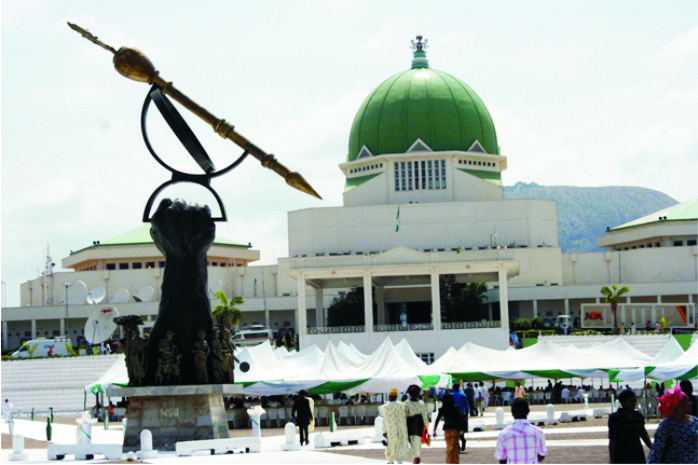Editorial
Before 2023 Elections

More than one year after the February 23, 2019 Presidential and National Assembly elections and the subsequent Governorship and State House of Assembly polls held on March 9 of the same year, claims and counter-claims of the credibility or otherwise of the elections are still reverberating within the nation’s political space. Not too long ago, the Supreme Court finally put to rest some of the high profile cases involving Imo, Bayelsa, Rivers, Kano, Sokoto States and, of course, the litigation filed by Alhaji Atiku Abubakar, the Peoples Democratic Party (PDP) presidential candidate, against the All Progressives Congress (APC) flagbearer and incumbent President of Nigeria, Muhammadu Buhari.
Accusations and counter-accusations of electoral manipulations, violence, the role of security operatives to favour particular party or politician, vote buying, ballot box snatching, among other vices which characterised the electoral process still dominate public discourse till date.
Understandably, stakeholders, the civil society groups, the media, foreign observers, political parties, the academia, among others, commonly agree that Nigeria is yet to get it right and the need to rejig the nation’s political and electoral process, therefore, becomes inevitable and imperative.
Stakeholders blame the Independent National Electoral Commission (INEC) for what most considered as biased and partial (mis)handling of the electoral system while others accused the security community, especially the military for doing the bidding of the ruling party, the APC.
While The Tide empathises with losers of the 2019 general election, we, however, strongly believe that most of the challenges and hiccups that bedeviled the elections emanated from the Electoral Act which urgently requires amendment before the 2023 general elections.
Happily enough, the electoral umpire, INEC, had in its post-election assessment conceded that the 2019 elections were anything but okay and perfect. In other words, INEC’s Chairman, Professor Mamood Yakubu, confirmed that the elections fell short of global best practices, though, according to him, no election in the world could be said to be flawless or perfect.
Perhaps, that is why the Senator Ovie Omo-Agege Constitution Review Committee and the National Assembly’s move to further amend the Electoral Act becomes absolutely necessary as the country strives in our democratic experiment.
We are, indeed, consoled by the Deputy Senate President, Omo-Agege’s confessions that the 9th Senate’s efforts at amending the Electoral Act was, indeed, prompted by the Supreme Court and the INEC that observed the need to comply with electoral rules and regulations and the inevitability to further amend the Electoral Act before the next phase of elections.
Citing the bill entitled: Bill for an Act to Amend the Electoral Act (No 6) 2010 and other Related Matters 2019, Omo-Agege noted that “in response to several decisions by the Supreme Court wherein the apex court directly or indirectly invited the National Assembly to make necessary amendments to the Electoral Act, it is only responsible for NASS to act accordingly wherever there are apparent lacunae in our laws.”
The Tide agrees no less with the Deputy Senate President who also doubles as chairman of the Constitution Review Committee. Our position hinges on the obvious fact that the quantum of electoral litigations that greeted the 2019 general elections was quite enormous and constituted a huge pressure and challenge on our judicial process.
From all indications, it does appear that never in our electoral history had Nigeria witnessed such avalanche of petitions that put the nation’s judicial process on edge. The 2015 general elections were not that bad as compared to 2019.
That is why the political class, the parties, INEC, 1999 Constitution (as amended), the Electoral Act, security agencies, among others, need to up their game; and one sure way to do that is to allow internal democracy, strict adherence to rules and regulations must be observed.
For Nigeria to make significant progress in politics and democracy, we must imbibe global best practices as evidenced in the advanced democracies of the Western world. Our politicians and parties must learn to obey the law and imbibe an enduring political culture that he who fights today and loses in a transparent process has another day to win.
Section 153 (f) and Section 160 of the Constitution and Sections 153 of the Electoral Act 2010 (as amended) clearly state that provisions of the Electoral Act and the 1999 Constitution as they affect our elections should not be observed pervasively as such could cause incalculable damage to our integrity and electoral system.
Electronic voting pattern and other modern techniques and technologies that will minimise electoral fraud, rigging and other vices that virtually marred the 2003 elections must be introduced.
That, for us, is the right way to go if Nigeria should make significant progress in its electoral system.
Editorial
Resolve Rumuwoji Market Issues, Others

Editorial
As NDG Ends Season 2

Editorial
Beginning A New Dawn At RSNC

-
Politics3 days ago
2027: NIGERIANS FAULT INEC ON DIGITAL MEMBERSHIP REGISTER DIRECTIVE
-

 Environment3 days ago
Environment3 days agoLAWMA Director Says Sweeping Reforms Have Improved Waste Collection
-
Politics3 days ago
LP Crisis: Ex-NWC Member Dumps Dumps Abure Faction
-

 Politics3 days ago
Politics3 days agoUmahi Dismisses Allegations On Social Media, Insists On Projects Delivery
-

 Sports3 days ago
Sports3 days agoAbia Not Sure To Secure continental Ticket
-
Sports3 days ago
La Liga: Yamal Records First Career Hat-trick
-

 Sports3 days ago
Sports3 days agoCity Survive Leeds’ Challenge At Elland Road
-
Politics3 days ago
NATASHA ELECTRIC VEHICLES INITIATIVE IN KOGI CENTRAL

